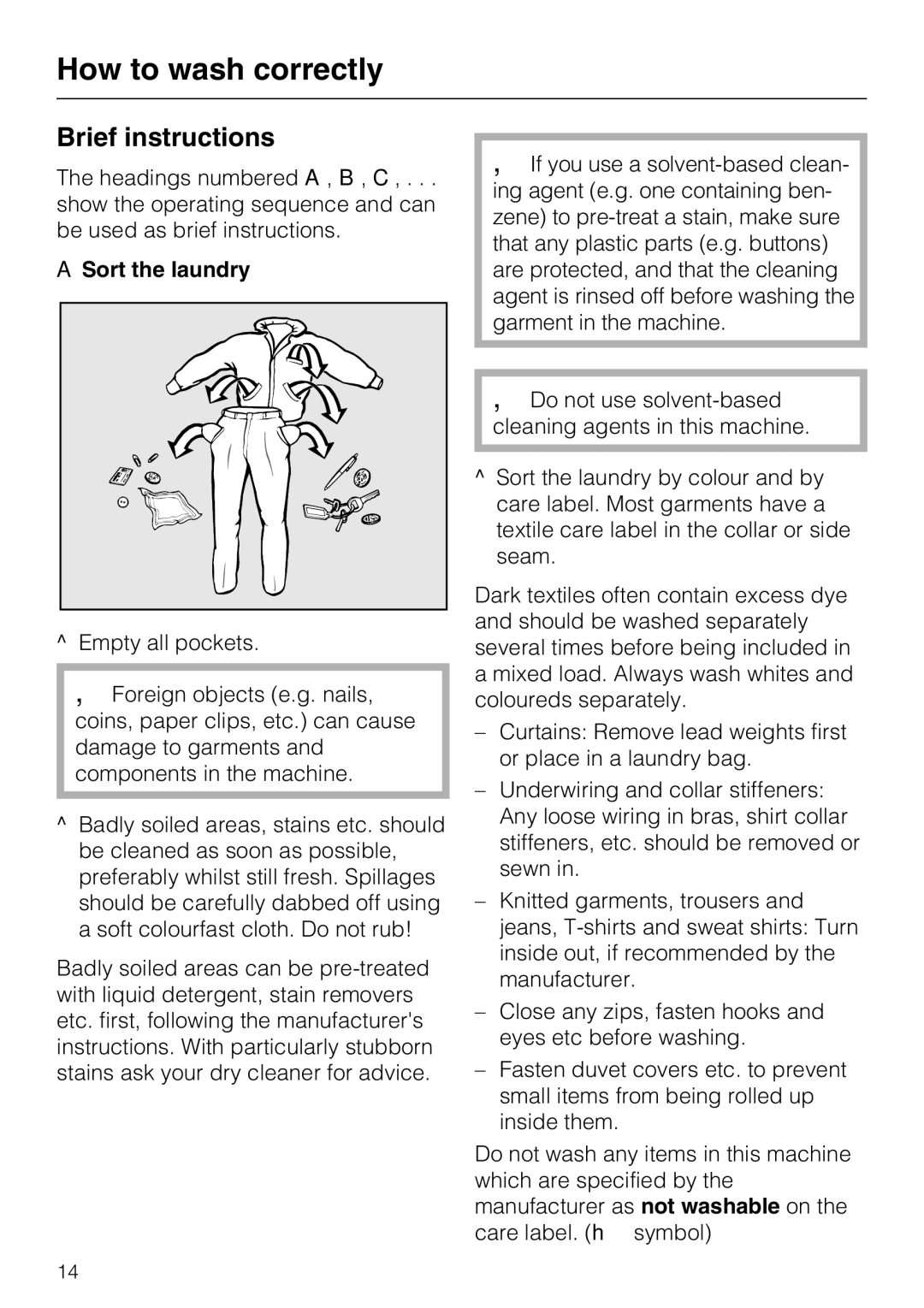W 1512 specifications
The Miele W 1512 is a premium washing machine that combines cutting-edge technology, performance, and a user-friendly design, making it a popular choice for households seeking efficient and reliable laundry solutions. This model exemplifies Miele's commitment to quality, durability, and innovation, standing out in a crowded marketplace.One of the key features of the Miele W 1512 is its large capacity drum, which can handle up to 7 kg of laundry. This makes it ideal for families or those who frequently wash larger loads. The machine uses a unique honeycomb drum design that protects garments while providing excellent cleaning performance. The structure allows water to move effortlessly, ensuring clothes are washed efficiently without causing damage.
Energy efficiency is another hallmark of the W 1512. It is rated A+++ for its energy efficiency, signifying it consumes minimal electricity while delivering optimal cleaning results. This eco-friendly approach is complemented by the use of Miele's patented EcoFeedback feature, which provides users with information on energy consumption and helps in selecting the most energy-efficient programs.
The W 1512 is equipped with Miele’s renowned honeycomb drum technology that creates a thin film of water between the drum and clothing. This design feature enhances the washing process by minimizing friction, ultimately preserving the integrity of fabrics and delivering gentle washing, even for delicate items.
Another impressive aspect of the W 1512 is its array of wash programs. The machine boasts 12 different options, including specific cycles for cottons, synthetics, delicates, and a quick wash program for lightly soiled clothes. The user-friendly control panel allows easy navigation through the various settings, enabling users to select the most suitable program for each load.
The Miele W 1512 also features a delay start option, allowing users to set the machine to start at a more convenient time. Additionally, with a spin speed of up to 1400 RPM, clothes come out not only clean but also significantly drier, reducing drying time.
Moreover, the machine incorporates Miele's patented water control system, which ensures optimal water intake while monitoring for leaks, thus enhancing safety. With its robust build quality and superior warranty terms, the Miele W 1512 represents a sound investment for anyone looking for a high-performance washing machine designed for longevity and efficiency. Whether you're washing everyday items or special garments, this washing machine delivers exceptional results with every cycle.

